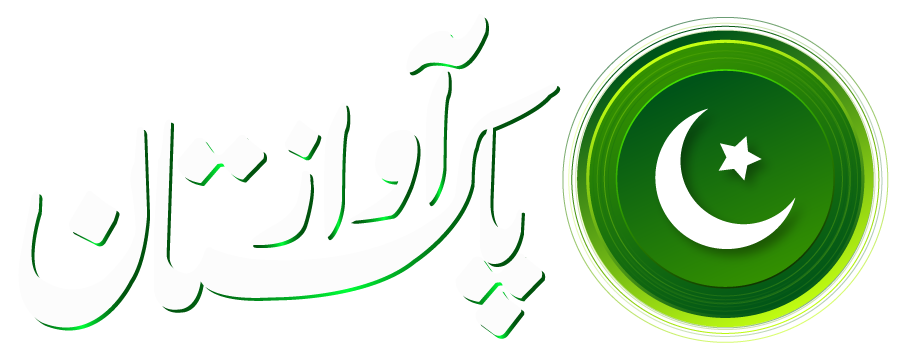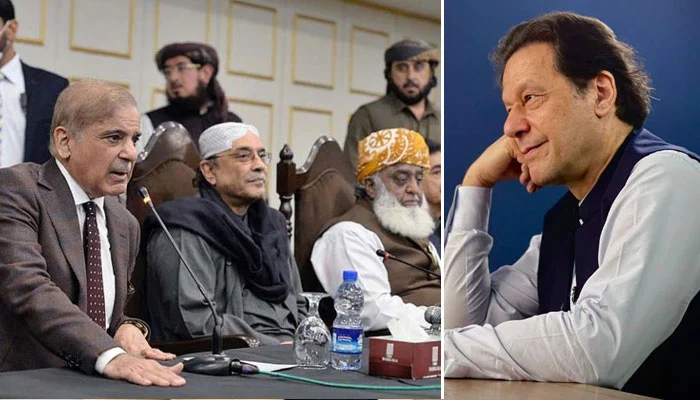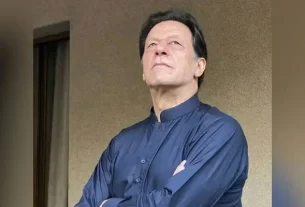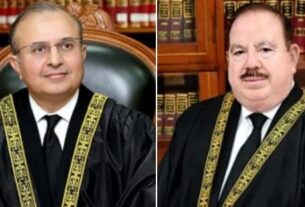1. Government Corruption
Corruption in government has long been a problem, particularly in developing countries like Pakistan. The allegations of corruption and mismanagement of public funds have frequently dominated the political landscape of the nation, including both opposition and government leaders. This is also true of the Pakistan Democratic Movement (PDM), an alliance of opposition parties, and the administration of former Prime Minister Imran Khan. In Pakistan, accusations of corruption against both parties have sparked a continuous discussion about accountability, transparency, and governance.Corruption in government has long been a problem, particularly in developing countries like Pakistan. Accusations of corruption and misappropriation of public funds have frequently dominated the political landscape of the nation, including both opposition and government leaders.
This is also true of the Pakistan Democratic Movement (PDM), an alliance of opposition parties, and the administration of former Prime Minister Imran Khan. In Pakistan, accusations of corruption against both parties have sparked a continuous discussion about accountability, transparency, and governance.
2. Government Corruption: What Is It?
a. How to Define Corruption
The abuse of public authority or resources for private benefit referred to as government corruption. It covers things like money laundering, nepotism, embezzlement, and bribery. For decades, corruption in Pakistan’s government a problem, and accusations have been made against leaders of different political parties. Government priorities are distorted by corruption because money intended for the general good is sometimes diverted to the coffers of dishonest officials.
Corruption increases social inequality, impedes economic growth, and threatens democratic processes. It causes the public’s confidence in its leaders to erode. These problems are especially prevalent in Pakistan’s political landscape, where leaders from all parties have been accused of financial mismanagement and corruption.
3. Imran Khan against Corruption
a. Khan Imran Anti-Corruption
The former cricket player who became a politician, Imran Khan, came to power with the pledge to end corruption. His party, Pakistan Tehreek-e-Insaf (PTI), ran a strong anti-corruption campaign, promising to build a “new Pakistan” free from the structural problems that had long afflicted the nation. Imran Khan’s goals were to establish an open government, eradicate corruption, and use sound governance to revive the economy.
Imran Khan did, however, receive his fair share of criticism and accusations of corruption while in power. His opponents charged that his administration had fallen short of his pledges to combat corruption. A number of controversies surfaced, including dubious choices about government contracts, financial anomalies in public monies.
4. Claims of Corruption Against Imran Khan
Imran Khan’s administration came under fire for a number of choices pertaining to government contracts, relief efforts, and infrastructure projects. The management of COVID-19 humanitarian funding was the subject of one of the major accusations. Funds intended for pandemic relief allegedly squandered, with allegations of partiality in contract awards and opaque disbursements.
Imran Khan was accused by the opposition, especially the PDM, of using the anti-corruption campaign as a smokescreen to hide the shortcomings of his government. Even though investigations were started, a lot of these claims have not been validated, therefore the public continues to doubt Khan’s anti-corruption efforts.
5. The Pakistan Democratic Movement’s (PDM) Function
a. PDM and Opposition Corruption
In 2020, a coalition of opposition parties called the Pakistan Democratic Movement (PDM) established with the primary goal of contesting the legitimacy of Imran Khan’s administration. The PDM outspoken in its accusations of corruption against Imran Khan’s government and is made up of prominent members of the Pakistan Muslim League-Nawaz and Pakistan Peoples Party other smaller parties. But there have been numerous allegations of corruption against the PDM itself.
PDM leaders like Asif Ali Zardari and Nawaz Sharif have a lengthy history of being accused of corruption. The Supreme Court’s 2017 decision in the Panama Papers case, which revealed enormous offshore riches connected to his family, disqualified PML-N leader Nawaz Sharif from office. Former Pakistani president and PPP co-chairman Asif Ali Zardari has also been involved in a number of corruption investigations, including accusations of embezzlement and money laundering.
6. Claims of Corruption Against PDM Leaders
The opposition leaders have long been charged with widespread corruption, particularly Nawaz Sharif and Asif Ali Zardari. A significant scandal resulted from Nawaz Sharif’s role in the Panama Papers leak, which revealed that his family owned multiple opulent London houses. His party came under fire for its deep involvement in corrupt activities while in power, and he ultimately barred from holding public office.
Throughout his political career, Asif Ali Zardari, also known as “Mr. 10 Percent,” accused of corruption on multiple occasions. Many have pointed to his term as a time of widespread corruption in the administration, and he has been accused of accepting bribes and kickbacks while in office.
Even though the PDM critical of Imran Khan’s administration, its legitimacy as a clean alternative is called into question by these accusations of corruption against its leaders. This has resulted in a political deadlock where both sides accuse one another of corruption, making the political climate intensely polarized and stagnant.
7. The Impact of Corruption on Pakistan’s Political Environment
Corruption has a substantial effect on a country’s political stability and is not only a legal or economic problem. The government and opposition in Pakistan accused of corruption repeatedly, which has led to a very unstable political environment. The public and media have criticized both the PDM and Imran Khan’s PTI for their roles in corruption scandals.
Political leaders’ frequent allegations and infighting take focus away from the real governance problems that require attention. The political conversation still consumed with accusations, investigations, and rebuttals of corruption rather than addressing poverty, enhancing public services, or growing the economy.
8. Economic Impacts of Corruption in Government
a. The Economic Cost of Corruption
The effects of corruption on Pakistan’s economy are extensive. Essential services including healthcare, education, and infrastructure development frequently underfunded as a result of the misappropriation of public monies. Foreign investment deterred by corrupt practices because investors reluctant to participate in a market where kickbacks and bribes commonplace.
Because it enables a select few elites to accumulate enormous riches while the majority of the population continues to live in poverty, corruption also plays a role in income inequality. The rich-poor divide in Pakistan has grown over time, and corruption is a major contributing factor to this inequality. Corrupt officials frequently embezzle public monies intended for development and poverty alleviation.
8.Economic Impacts of Corruption in Government
a. The Economic Cost of Corruption
The effects of corruption on Pakistan’s economy are extensive. Essential services including healthcare, education, and infrastructure development frequently underfunded as a result of the misappropriation of public monies. Foreign investment deterred by corrupt practices because investors reluctant to participate in a market where kickbacks and bribes commonplace.
Because it enables a select few elites to accumulate enormous riches while the majority of the population continues to live in poverty, corruption also plays a role in income inequality. The rich-poor divide in Pakistan has grown over time, and corruption is a major contributing factor to this inequality. Corrupt officials frequently embezzle public monies intended for development and poverty alleviation.
NAB has been crucial in uncovering corruption in the opposition and administration, despite these obstacles. Although the public has frequently become upset with the slow speed of legal proceedings, it has initiated numerous probes against the financial transactions of political figures.
9.Government Accountability and Transparency
a.Improving Openness in Government
One of the most important aspects of combating government corruption is transparency. Without transparency, corruption flourishes covertly, making it challenging to hold public servants responsible for their deeds. The PDM and Imran Khan’s administration have both come under fire for their opaque decision-making procedures.
The public, media, and civil society organizations have all called for increased transparency. Reducing corruption requires open governance, where details about government expenditures, contracts, and regulations are readily available. Transparency is greatly aided by reforms like the Right to Information (RTI) Act, which permits citizens to ask the government for information.
Despite its existence, the RTI Act has not always used consistently. Requests for information often not promptly answered by many government agencies, and those who do not supply the necessary information are not held accountable. To increase government transparency, these laws must be strengthened and their effective application ensured.
1. Who is Pakistan’s most dishonest prime minister?
Gillani was jailed and disqualified, becoming the first prime minister of Pakistan to be found guilty while in office. Gillani is rightly criticized for a protracted period of stagflation during which corruption was rampant, the government was poorly run, and basic economic issues were disregarded.
2. What led to Imran Khan’s removal from office?
In the National Assembly, a number of opposition parties united to submit a motion of no confidence against Imran Khan. A majority in the Lower House eventually approved the resolution, which resulted in Khan’s dismissal from office.
3. Which institution in Pakistan fights corruption?
The top anti-corruption agency in Pakistan is the National Accountability Bureau. With its headquarters in Islamabad and seven regional offices in Karachi, Lahore, Peshawar, Quetta, Rawalpindi, Multan, and Sukkur, it functions in accordance with the National Accountability Ordinance, 1999.
.
یہ بھی پڑھیں عمران خان کے سابق مشیر پرویز خٹک نے پی ٹی آئی کے ایم پی ایز کو تربیت دی




